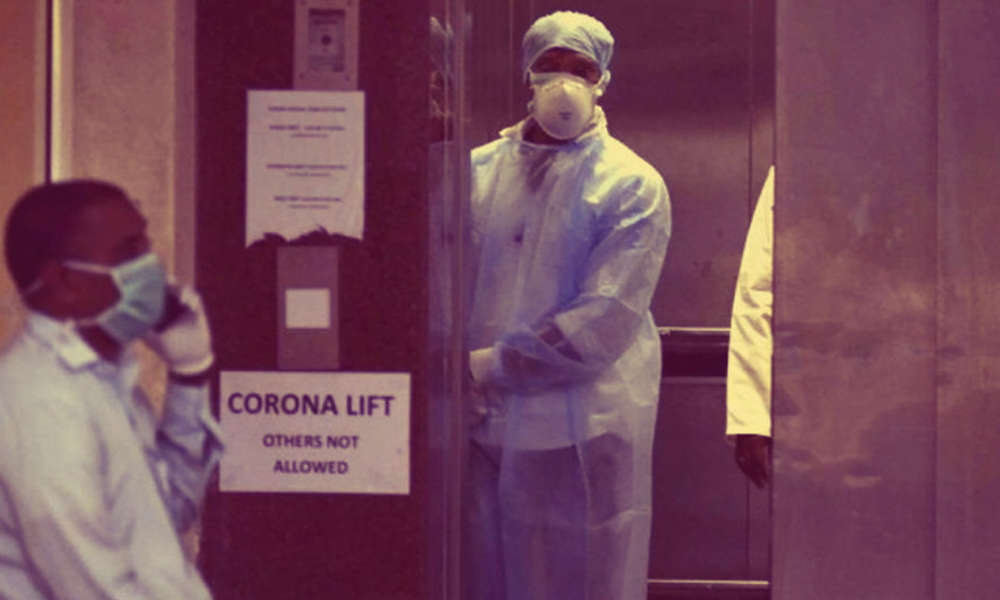
Image Credits: News18
Coronavirus Outbreak: Govt Invokes Colonial-Era Epidemic Diseases Act; What Does It Mean?
15 March 2020 6:12 AM GMT | Updated 15 March 2020 7:33 AM GMT
Editor : Prateek Gautam |
A free soul who believes that journalism, apart from politics, should stand for social cause and the environment.
By : Reethu Ravi
Reethu, a story teller, a person often found between the pages of a book or contemplating the nuances of life.
The cabinet secretary on Wednesday, March 11, announced that all states and Union Territories should invoke provisions of Section 2 of the Epidemic Diseases Act, 1897.
As India struggles to contain the sudden spike in the number of COVID-19 cases in the country, the cabinet secretary on Wednesday, March 11, announced that all states and Union Territories should invoke provisions of Section 2 of the Epidemic Diseases Act, 1897.
"It was decided that all States/UTs should be advised by MoHFW to invoke provisions of Section 2 of Epidemic Disease Act, 1897 so that all advisories being issued from time to time by the Ministry of Health & Family Welfare/State/UTs are enforceable," the Ministry said in a statement.
The decision came at a meeting organised in Delhi by the cabinet secretary. It was attended by Secretaries of the concerned Ministries, representatives from Army, and ITBP.
The World Health Organization (WHO) on Wednesday, March 11, also declared the novel coronavirus outbreak, which has spread to at least 114 countries around the world, a pandemic.
At present, at least 107 people in India are infected with the novel virus and two have died.
Globally, there are over 141,400 confirmed cases of COVID-19, and over 5,300 have died. In China, over 3,180 people have died from the virus, and there are over 80,800 confirmed cases.
Outside China, Italy and Iran are the worst affected with over 17,600 infections in Italy and over 11,000 in Iran. While Italy has reported at least 1,266 deaths, Iran has reported at least 514.
What Is the Epidemic Diseases Act, 1987?
The Act was introduced by the British in 1987 to fight the bubonic plague epidemic that had spread in the former Bombay Presidency in the 1890s.
It gave special powers to the local authorities to search suspected plague cases in homes and among passengers, and even forcible segregation of affected persons. For its potential for abuse, the Act has been widely criticised by historians.
With just four sections, the Act is one of the shortest Acts in India and aims to provide "for the better prevention of the spread of dangerous epidemic diseases."
However, the Act does not define "dangerous epidemic disease".
Section 2 of the Act, which describes the powers of the government, says, "When at any time the state government is satisfied that the state or any part thereof is visited by or threatened with, an outbreak of any dangerous epidemic disease; if it thinks that the ordinary provisions of the law, for the time being, are insufficient for the purpose, then the state may take, or require or empower any person to take, such measures, and by public notice prescribe such temporary regulations to be observed by, the public or by any person or class of persons as it shall deem necessary to prevent the outbreak of such disease or the spread thereof, and may determine in what manner and by whom any expenses incurred (including compensation if any) shall be defrayed."
It further adds that the state government may prescribe regulations for "the inspection of persons travelling by railway or otherwise, and the segregation, in hospital, temporary accommodation or otherwise, of persons suspected by the inspecting officer of being infected with any such disease."
Section 3 of the Act penalises any person disobeying any regulations.
"Any person disobeying any regulation or order made under this Act shall be deemed to have committed an offence punishable under section 188 of the Indian Penal Code," the Act says.
Meanwhile, Section 4 provides legal protection to the implementing officers acting under the Act.
In a 2009 paper, The Indian Journal of Medical Ethics described the Act as "one of the most draconian pieces of sanitary legislation ever adopted in colonial India." It added that "the potential for abuse was enormous."
While the Act emphasises on the powers of the government, it says nothing about the rights of the citizens. It also doesn't mention the duties of the government in preventing and controlling epidemics.
Also Read: Coronavirus Now A Pandemic: Know What It Means And How It Is Different From Epidemic
 All section
All section














